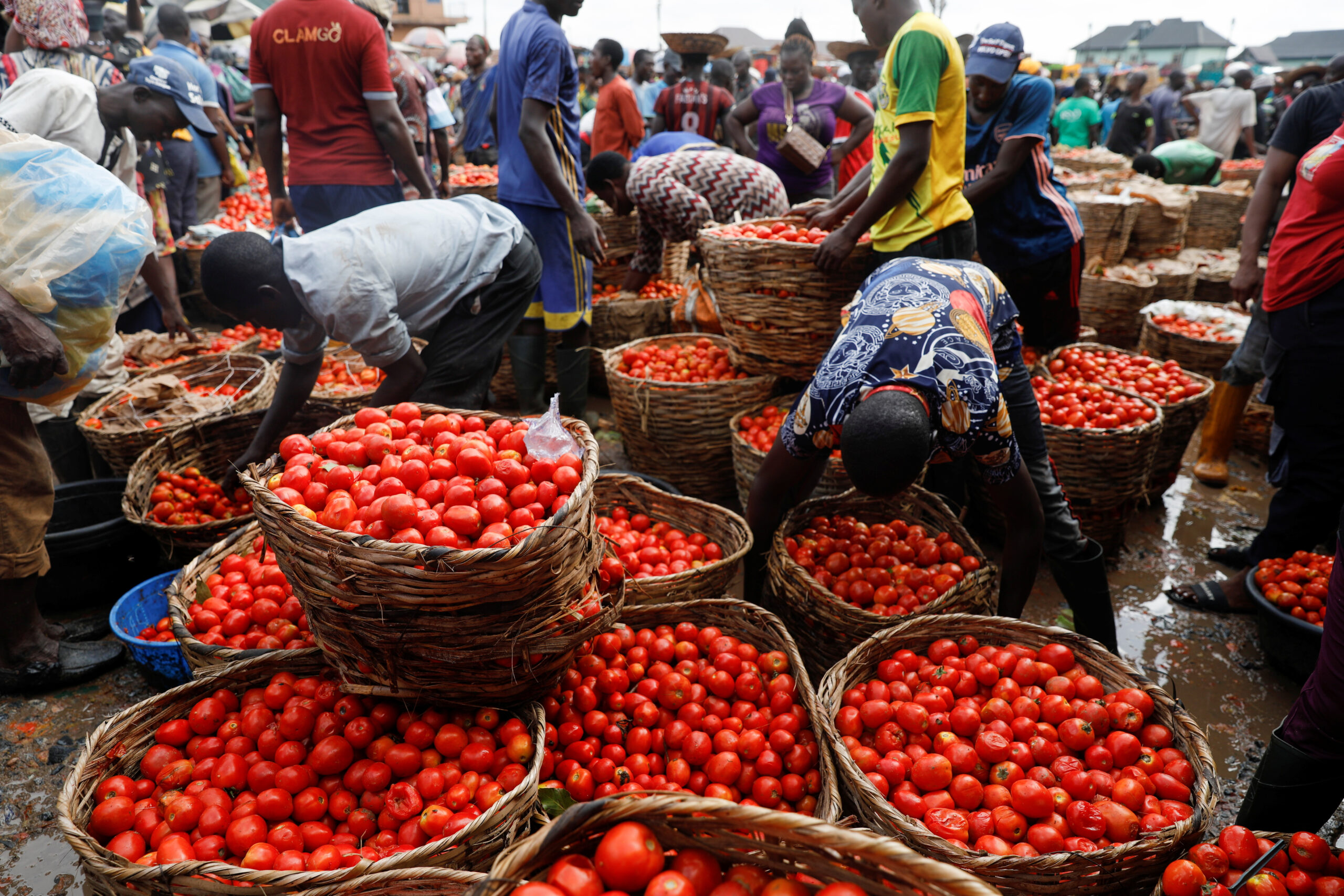Nigeria’s escalating food crisis has once again drawn the attention of the Federal Government, with President Bola Tinubu ordering the Federal Executive Council to urgently implement measures to bring down food prices across the country.
According to the federal government, the directive is targeted at guaranteeing the safe passage of farm produce across major transport routes to cut down logistics costs that have driven food inflation to unprecedented levels.
Nigeria, Africa’s most populous nation, has witnessed rampant food insecurity in recent years, exacerbated by the removal of fuel subsidies and insecurity, disrupting the movement of goods.
Tinubu’s plan, which is linked to his broader vision of food sovereignty, seeks to ensure not just food availability but also dial back costs and improve nutrition.
This announcement signals a policy push that places logistics, security, and farmer support at the core of Nigeria’s battle against hunger and inflation.
Soil health and food production
A central plank of the government’s plan is the Farmer Soil Health Scheme, which is aimed at increasing productivity at the farm level.
Declining soil fertility has impacted roughly 33% of Nigeria’s agricultural lands, thanks to erosion, nutrient imbalance, acidification, compaction and loss of organic matter.
Studies show that farmers using more advanced soil management practices, such as certified seeds, organic/inorganic fertilisers, herbicides and pesticides, see substantially higher agricultural productivity.
In some cases, maize producers using proper fertilisation techniques have reported yield increases of up to 30%. Improving soil health would therefore have a major impact in turning scarce agricultural output into abundant supply, helping to stabilise prices over time.
Reviving cooperatives
Beyond soil health, the government’s renewed interest in revamping cooperatives offers another layer of promise. Cooperatives like the National Agricultural Co-operative Organisation(NACO) enhance access not only to inputs like seeds and fertiliser but also to extension services, markets and group-based investment.
They serve as a channel for distributing soil technologies and improved practices, as studies show cooperative membership is strongly correlated with better access to fertilisers, pesticides, organic inputs and certified seeds.
Cooperatives have helped reduce production costs and improve bargaining power, thereby enabling farmers to benefit from economies of scale and resist price volatility.
The plan to secure the safe passage of goods also connects directly with Nigeria’s struggle against logistics bottlenecks and insecurity. Poor and unsafe transport routes raise the cost of moving goods, increasing losses due to spoilage or theft, and ultimately driving up consumer prices.
An analysis of transport connectivity across Africa shows that infrastructure deficits and unsafe roads significantly amplify food price variability and reduce efficiency of markets.
If Nigeria can establish protected transport lanes for food produce, paired with security enforcement, costs should fall, losses drop, and more perishable goods will reach markets in good condition.
At the community level, grassroots innovations are already emerging as part of the solution. Urban farming initiatives, particularly in states like Lagos and Kano, are shortening supply chains by bringing food production closer to consumers.
Rooftop gardens, hydroponics and community farms reduce reliance on long-distance transport while improving access to fresh produce in urban centres. These local solutions not only complement national policies but also empower citizens to take control of their food supply.
When combined with government initiatives, such innovations can build a hybrid system where both large-scale farming and small urban production work hand in hand to reduce scarcity.
Ultimately, Nigeria’s food crisis requires a mix of short-term relief and long-term reforms. President Tinubu’s directive to secure food corridors and improve logistics provides an immediate pathway to affordability, while schemes like soil health programmes and cooperative reforms address structural issues in the agricultural sector.
The challenge now lies with sustaining and scaling up community-driven initiatives to ensure that food in Africa’s most populous nation is not only available but also affordable, accessible and nutritious for all.
Summary not available at this time.






